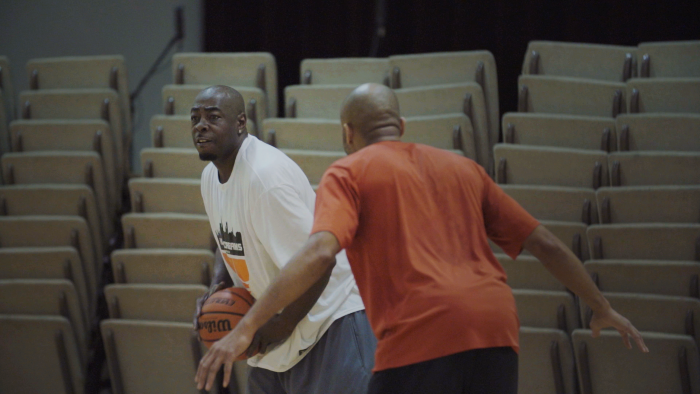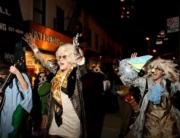It’s a truism, if not an outright cliché, to say it’s difficult to differentiate between the real and the fake these days. Widespread misinformation, social media and the way it tempts people to sculpt a self-image, and the unending stream of content from media sources, all have conspired to make it hard to tell what’s what. The increased popularity of documentaries perhaps signals a collective hunger for the facts themselves.
Filmmakers Camilla Hall and Jennifer Tiexiera are here to remind us that nothing is quite so simple. Their documentary, as its title proclaims, focuses on those who agreed to be filmed for documentaries as diverse as The Staircase, Hoop Dreams, Capturing the Friedmans, The Square, and more. They come forward to tell their version of the story, the emphasis being on what participating in these films did to their lives. They are joined by a selection of producers, who offer their thoughts on the moral implications of nonfiction filmmaking.
One of the strengths of this film is that it gives voice to a multiplicity of responses. For many, the result has been a mixed blessing, and in the case of Margie Ratliff (one of the daughters from The Staircase), it has not been beneficial at all. She details how she did not consent at all to be in the documentary (which covered the murder trial of her father, Michael Peterson). She feels the process was deeply invasive, destroyed her privacy, demonized her in the eyes of many, and ruined her life. Add to this that there was also a 2022 HBO series, starring Colin Firth and Sophie Turner, based on that documentary. (Turner asked if she could interview Ratliff to prepare for the role. Ratliff declined.)
Others have had more positive experiences, but a common theme is that the aftereffect has been a genuine challenge. Ahmed Hassan, from The Square, was seen on screen as he himself filmed and participated in the 2011 Egyptian revolution. He was thrilled to have his activism receive so much attention. Yet the consequence has been that he is no longer safe in his own country. He’s now in the United States, trying to make films with no support system whatsoever. The only wholly positive experience seems to be from the participants of The Wolfpack, who emerged from complete isolation and were given both catharsis and job prospects by the success of that movie.
Among the issues that the various interviewees (mostly producers) who are not subjects bring up are: participants are rarely paid; privacy and boundaries are rarely discussed; filmmakers should pay attention to who is allowed to tell what story and, conversely, how they go about telling the stories of others. The more fascinating moments occur when the subjects themselves contradict the talking heads. Arthur Agee, who was in Hoop Dreams as a teenager, contests the suggestion that the filmmakers were appropriating a Black story, stating that they instead stepped out of their own experience to acknowledge something human elsewhere. His gratitude toward them is clear, though he too struggled being in the limelight afterwards.
The talking heads all hammer home that this is a field that requires collective examination. Their point is well-taken, yet where this documentary fails to satisfy is in proposing solutions. I fully concede that this might not be the point, that the emphasis might be on starting conversations rather than finishing them. Yet we hear so much about the urgency of the issues raised that this absence begins to feel like a loose end, or a failure of ambition. Additionally, the film is often confused tonally, full of tear-jerking yet inspiring music that feels more appropriate to a story about the many joys of movies rather than the mixed fate of those who have been filmed.
That being said, Subject is convincing in its insistence that now is the time to start raising these questions. Maybe future filmmakers, let alone the industry, will find ways to answer them.







Leave A Comment